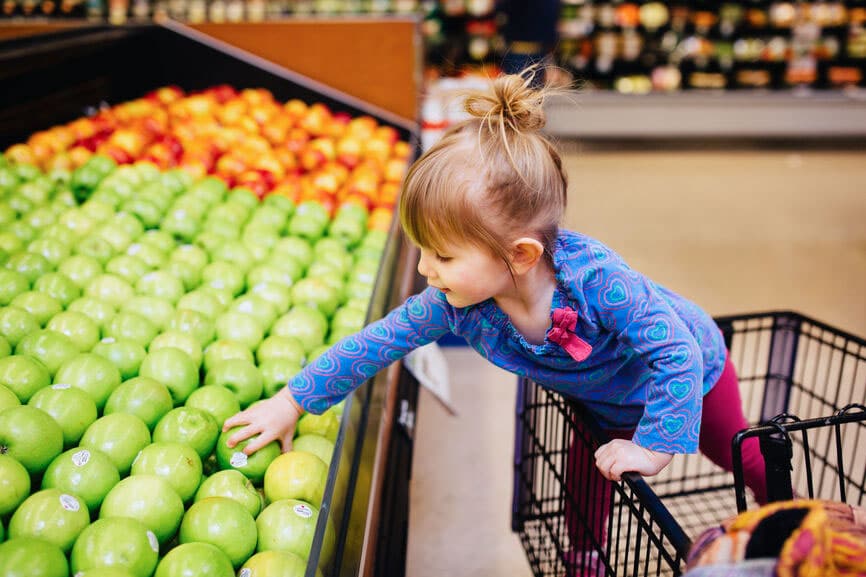You know the feeling. You’re standing in the grocery store, and before you is a choice. On your left, a bin full of delicious-looking, impossibly red tomatoes. On your right, a bin full of delicious-looking, impossibly red organic tomatoes. In many ways, they look identical. But in one crucial way — price — they couldn’t be more different.
Organic foods are 47% more expensive, on average, according to Consumer Reports. That’s not much when comparing apples to apples, but it adds up to a whole lot over an entire grocery visit, or an entire year of grocery visits.
Still, with apologies to Freud, sometimes a tomato isn’t just a tomato. To choose organic is to signal your virtue as someone who opposes pesticides and puts the health of yourself and your family above such petty concerns as what something costs.
Except … maybe it doesn’t matter. You haven’t noticed a difference in taste between organic and conventional tomatoes. They certainly don’t look all that different from each other. You didn’t eat organic growing up, and you turned out fine. And, hey, no one’s really watching you anyway. Maybe you should just get the conventional tomatoes.
Many of us have gone through a thought process just like this, spending way too much time making a decision in a day full of them. It’s exhausting. That’s why we put together this guide to help you decide when it makes sense (and when it doesn’t) to buy organic.
First, let’s define some terms. As a report from Columbia University neatly puts it, “organic foods and products must be produced using approved methods, which promote recycling of resources, are not harmful to the environment, and preserve biodiversity. Organic foods are grown and processed without synthetic fertilizer, synthetic pesticides, prophylactic antibiotics, or hormones.”
Organic meats are also given organic feed. The report goes on to state that the standards set by the United States Department of Agriculture (USDA), which oversees the certification of all organic products. “If a product contains 95% or more organic materials, it is permitted to use the USDA Organic seal.” In other words, if 95% of that tomato was grown without synthetic fertilizer, pesticides, antibiotics or hormones, it’s organic. (Note, too, what’s not listed here. Terms like free-range, grass-fed and “natural” won’t tell you if something is — or isn’t — organic.)
So is it right for you? Here are some things to consider:
The safety and nutrition of organic food
The apparent benefit of organic foods is the lack of chemicals. This won’t surprise you, but consuming pesticides has been linked to an increased risk of an array of diseases. According to a report from the National Institutes of Health, pesticide residue was five times higher in conventional foods than in organic ones — 38% to 7%.
There is also an increased risk of both chemical and bacterial contamination in conventional foods, either of which can lead to illness. So, yes, while that organic lettuce might cost a little more, it might save you money in medical bills down the road.
That said, what’s confusing is that there are plenty of high-fat, high-sugar processed foods labeled organic … So while organic food might limit your exposure to pesticides, it’s not necessarily more nutritious.
Who needs life insurance?
Life insurance is a smart move when you have people in your life who depend on you financially.
Read moreThe environmental impact of organic food
By not using pesticides or antibiotics, organic foods embrace a more natural approach to raising produce and meats. This means introducing fewer dangerous chemicals into the environment at large, which keeps the planet a little safer.
Organics also require less water, help prevent soil erosion and use less energy to grow, according to a Cornell University study. All big wins (though, again, those come at a literal cost for you and your family).
How to determine when it makes sense to buy organic foods
In a world where price is no object, it probably makes sense to buy organic food whenever possible. But for many, that’s just not realistic. So how do you prioritize? Here’s how.
1. Do your homework
You can start with the Environmental Working Group, a leading consumer safety group. It compiles lists of the Dirty Dozen foods most affected by pesticides and the Clean Fifteen that show the least contamination. Minimize consumption of conventional versions from the Dirty Dozen and don’t stress about eating organic from the Clean Fifteen.
2. Compare costs
As we have noted, organic foods cost 47% more, on average, than conventional groceries. The cost of organic foods can vary. It might be just a few cents difference of just a few cents (or less than a dollar), even if the percentage difference sounds large. You can also mitigate the added cost by aiming to buy organic foods when they’re in season, as they’re usually less expensive during that time of year.
Store brands, if they’re available, can be cheaper than name brands. Farmers’ markets might have lower costs than a grocery store, depending on the product and the season. You can prioritize offsetting the additional costs by saving in other areas of your budget.
3. Focus on what matters
As the Environmental Working Group’s list suggests, it’s typically the skin of a food that bears the brunt of chemical treatments, such as pesticides. This means you can deprioritize going organic for foods where the skin will be discarded, such as bananas, avocados, citrus, cantaloupe, papaya, mango and other fruits.
Pregnant women and young children are most at risk from chemical and bacterial contamination. Consider organic for anything they tend to eat.
4. Check out local options
Join a community supported agriculture group to get regular boxes of locally grown, in-season produce, which you can usually have delivered or pick up from your local farmers’ market. Or just make regular trips to your local farmers’ market, where you can shake the hand that feeds you, as they say, and ask questions about how your food is raised.
Many small farmers use organic methods but lack organic certification, which can be expensive to obtain. But those same farmers can answer your queries in a way that, say, a big chain grocery store cannot.
Make grocery shopping less hard
Grocery shopping is personal. Creating a budget is personal. Deciding how to balance competing priorities — namely, your family’s physical health with its financial health — is personal.
Ultimately, there is no one-size-fits-all approach to deciding when to buy organic foods. But this guide will help you make those personal decisions in the most informed way possible.
Louis Wilson is a freelance writer whose work has appeared in a wide array of publications, both online and in print. He often writes about travel, sports, popular culture, men’s fashion and grooming, and more. He lives in Austin, Texas, where he has developed an unbridled passion for breakfast tacos, with his wife and two children. This article is sponsored by Haven Life Insurance Agency. Opinions are his own.






